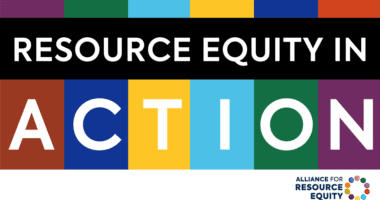2022 PISA Results Are in, and the Results are Grim—But There are Ways for U.S. Students to Succeed in a Global Economy
The Organization for Economic Cooperation and Development (OECD) just released their 2022 Program for International Assessment (PISA) for reading, math, and science for 15-year-olds around the world — and results paint a concerning picture: Black and Latino students scored lower than the national average in all tested subjects, and those from low-income backgrounds scored lower than their more affluent peers. These results are only the latest in a series of concerning assessments that expose the lingering and devastating impacts of the COVID-19 pandemic on students, particularly those who have long been unjustly and inequitably served by the U.S. education system.
All children can succeed if we offer them the right combination of resources that unlock high-quality learning experiences — but there needs to be a public will to act now. This new data only intensifies EdTrust’s calls for state and district leaders to spend their ESSER dollars and sustain investments in evidence-based practices that address unfinished learning, including intensive tutoring programs, teacher preparation and supports, and increased access to advanced courses, including math.
As America becomes more diverse, so should its workforce, innovators, and leaders. Access to advanced math has been proven to drive STEM career growth, increase graduation rates, and ensure America’s competitiveness in a global economy. EdTrust’s latest report, “Opportunities Denied: High-Achieving Black and Latino Students Lack Access to Advanced Math,” speaks to the core reasons why district and school leaders and policymakers must address longstanding challenges that deny Black and Latino students and students from low-income backgrounds access to advanced coursework that will put them on a path to succeed in college and career.
America cannot afford to continue existing under a system that gives less to the students who need the most. If gaps in opportunity and achievement are left unaddressed, the consequences for students and the nation are dire: We could see fewer Americans with college degrees, stymied access to jobs that pay a living wage, declines in home and business ownership, and more.
However, if policymakers and decision-makers use this evidence to act now, our nation will have a brighter future, where all kids are given the tools and resources they need to have a high-quality education and live the lives of their choosing.





